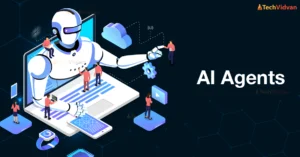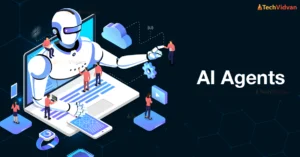https://theworldfinancialforum.com/participate/

Workday just raised the stakes in the AI agent race. The cloud-software firm is acquiring AI startup Sana for about $1.1 billion, part of a wider push into autonomous, finance- and HR-focused AI agents that can do everything from creating documents to automating recruiting workflows.
CEO Carl Eschenbach said the strategy hinges on Workday’s clean, well-curated HR and finance data—a potential differentiator in a crowded field.
With AI popping up everywhere, Workday is betting that robust internal data + smart agents = clear ROI for businesses.
The Sana purchase isn’t the only move. Workday has also launched a developer platform for custom agents, and unveiled AI agents aimed specifically at finance tasks (budgeting, expense approvals, forecasting).
Their idea: let companies build or use agents that handle repetitive tasks so people can focus on higher-value work.
Investors seem to like it. After the announcement, shares of Workday jumped thanks to renewed confidence.
Part of that came from activist investor Elliott Management buying more than $2 billion in stock and backing the company’s leadership and multi-year plan.
What they didn’t say — but matters
There are some risks baked in. Automating finance or HR with AI agents sounds sexy, but what about error margins, bias, or unintended automations?
Workday recognizes this: they say their AI tools undergo internal reviews for fairness, but whether those are enough is an open question.
Also, the regulatory environment is heating up. When agents make decisions around hiring, payroll, or expense approvals, companies expose themselves to legal scrutiny.
One mis-step and you have issues with labour law, privacy, or discrimination. Given recent tech sector regulation trends in the EU, UK, and US, this is something Workday, and its customers, can’t ignore.
Scaling is another challenge. Even though Sana brings in strong capabilities in knowledge-management and AI agents, integrating it across Workday’s global customer base will require large investment: training, change management, customer trust. It won’t be plug-and-play everywhere.
Why this feels like a turning point
Workday’s been seen as solid in HR/Payroll, but not always associated with the bleeding edge of AI ambition. With this move, they seem to be leaning in heavily—AI agents aren’t side projects anymore.
My feeling is this: Workday is trying to avoid being “disrupted” by newer startups or Big Tech offering AI-infused tools.
This acquisition gives them not just tech, but speed & credibility. If they can pull it off well, they could set the standard for what enterprise HR & finance tools look like in the next 3-5 years.
Bottom line
Workday’s $1.1B bet on Sana plus its agent developer platform show it wants to lead—not follow—in the AI agent wave.
Still, the ambition only matters if execution, fairness, and regulatory safety are taken seriously. We’ll be watching whether this big move pays off, or becomes another cautionary tale.
In mid-September 2025, Workday made headlines by agreeing to acquire Sana — an AI-native platform focused on enterprise knowledge tools, learning, and agent-based automation — for roughly US$1.1 billion. Reuters+2Investor Relations | Workday+2 At its core, this is more than just an acquisition: it is a clear signal of where Workday believes the future of workplace technology is headed. But is “doubling down” really enough, or is this move setting them up to win?

What Workday is Buying
Sana brings two main capabilities:
Sana Learn — A learning platform that uses AI to generate, personalize, and deliver educational content, courses, tutoring, etc. It accelerates content creation and adapts to learners’ needs. Investor Relations | Workday+1
Sana Agents — Tools (including a no-code agent builder) that can act proactively: automating repetitive tasks, summarizing insights, anticipating project needs, finding files/answers across data sources, etc. Investor Relations | Workday+2Computer Weekly+2
Sana’s tools are already used by over 1 million users globally and hundreds of enterprises. Investor Relations | Workday+1 Workday plans to integrate Sana’s technology into its HCM / HR, learning, finance workflow tools to deliver a more personalized, proactive “front door for work.” Investor Relations | Workday+2JOSH BERSIN+2
Why This Is More Than Just Another Acquisition
Here are the strategic levers and risks in play, which suggest it’s a serious “bet the future” move:
Strategic Drivers
AI-first user experience. Workday has historically been strong in back-office systems (HR, payroll, finance). But with Sana, it’s aiming to become the interface where employees actually get work done — not just process transactions. Search, agents, personalized tasks, course creation, etc. JOSH BERSIN+2UNLEASH+2
Learning & knowledge as first-class citizens. The workplace is changing fast. Skills obsolescence, remote/hybrid work, continuous learning are no longer optional. Sana’s learning tools give Workday a way to offer faster, scalable, adaptive learning. The time to create courses drops significantly; engagement reportedly can jump hundreds of percent under the right deployment. JOSH BERSIN+2Investor Relations | Workday+2
Automation and efficiency. Agents that automate repetitive or routine tasks (e.g. generating dashboards or performance review workflows) could free up time, reduce friction, improve compliance. If executed well, that’s a big win for both end users and companies. Investor Relations | Workday+1
Competition and defensive move. The world is full of AI agents now — from Microsoft Copilot, Google, SAP, Oracle and others. If Workday doesn’t embed agentic capabilities deeply, it risks becoming a backend system that others build front-ends over. Acquiring Sana gives them capabilities they’d otherwise have to build or lag in. JOSH BERSIN+2Futurum+2
Key Risks / Challenges
Integration & User Adoption. It’s one thing to buy Sana; it’s another to fold it into Workday’s products in a way that’s seamless, stable, secure, and helpful. Adoption by end users (employees, managers) and by IT departments will be crucial. UNLEASH+1
Data, privacy, compliance. Agents that access internal systems, documents, personnel data need robust governance, security, auditability. Mistakes could erode trust. A mis-configured agent could leak info, etc.
Competition is fierce. Many incumbents are pushing agent/AI strategies. Standing out will require Workday to deliver unique value, not just mimic others. The era of “agent fatigue” (too many tools, too many integrations) may make buyers choosy. Futurum
Expectation vs. reality. The hype around AIAgents is high; delivering consistent, valuable, reliable outcomes is still hard. Overpromising and underdelivering could backfire.
Are They Doubling Down Enough?
Given all this, yes — Workday seems to be doubling down in a meaningful way. The Sana acquisition is one of several recent moves: they also acquired companies like Paradox, Flowise, HiredScore, etc. JOSH BERSIN+2Computer Weekly+2 This suggests a broader strategy not just to add features, but to transform what Workday is, how its users interact with the platform, and where it sits in the enterprise tech stack.
Whether they win will depend on execution: how well the agent-powered learning and automation is delivered, how usable and trustworthy the AI agents become, and whether customers feel they are getting something significantly better (or more efficient) than their current tools.
What to Watch Next
How quickly Sana’s tools are rolled out across Workday’s existing user base (Workday claims 75 million users) Investor Relations | Workday+1
Whether core learning and HR-workflow metrics (like content creation time, engagement, retention, upskilling outcomes) improve materially for customers.
How well the “front door” idea takes off: are employees using agents vs navigating siloed tools?
Competitive responses: how rivals like SAP Joule, Microsoft Copilot, ServiceNow, Oracle respond. Also how customers perceive “agent overload” and how tools interoperate.
Conclusion
The Workday-Sana deal reflects a critical inflection point: the shift from software that just stores, tracks, reports, and processes, toward software that understands, anticipates, learns, and acts. If Workday can deliver on the promise — of combining agentic AI, knowledge, learning, and automation — then it may well be placing a winning bet on the future of work. But the journey from promise to daily value for employees and companies will be challenging — and that’s where the stakes are real.
